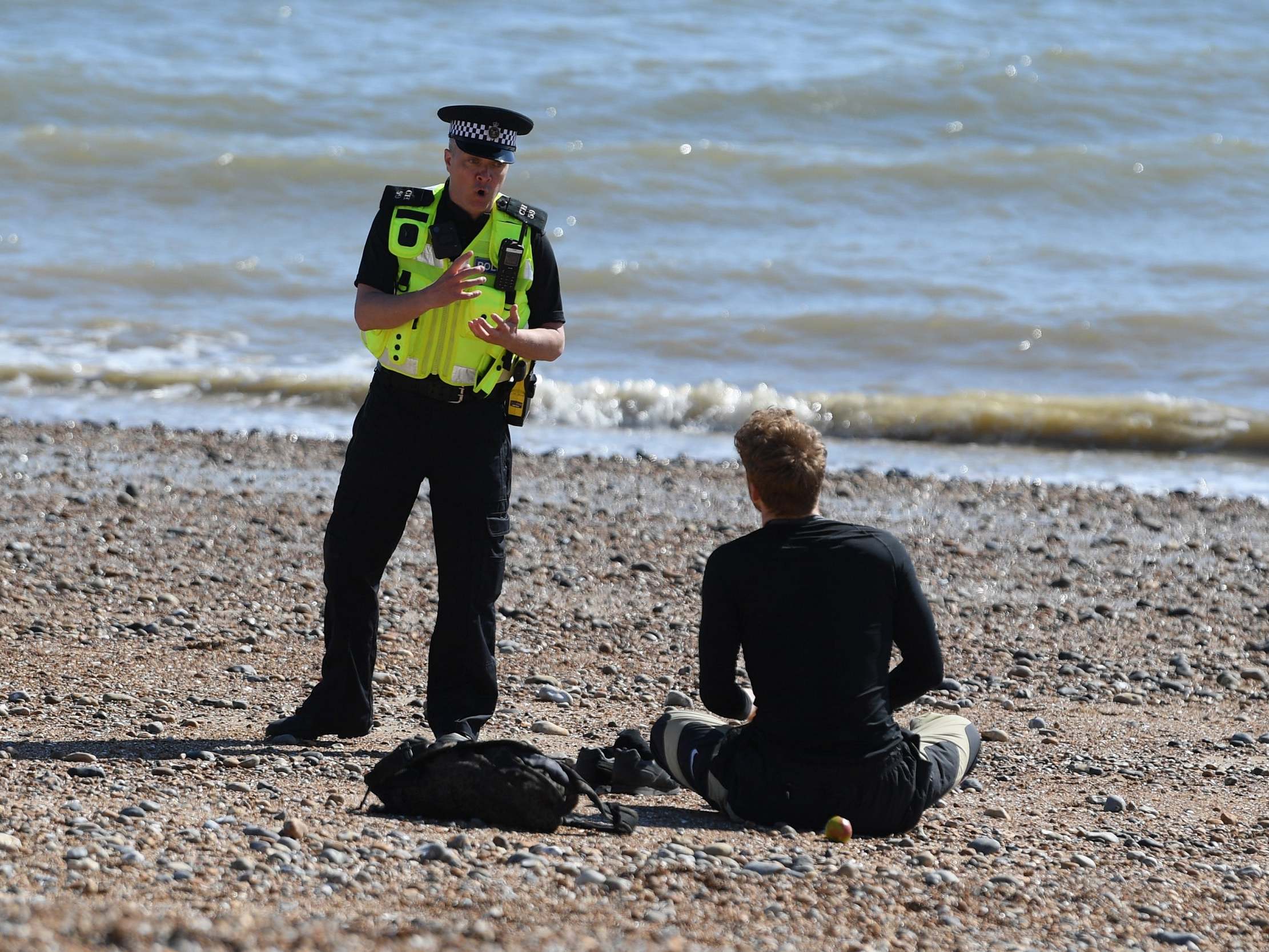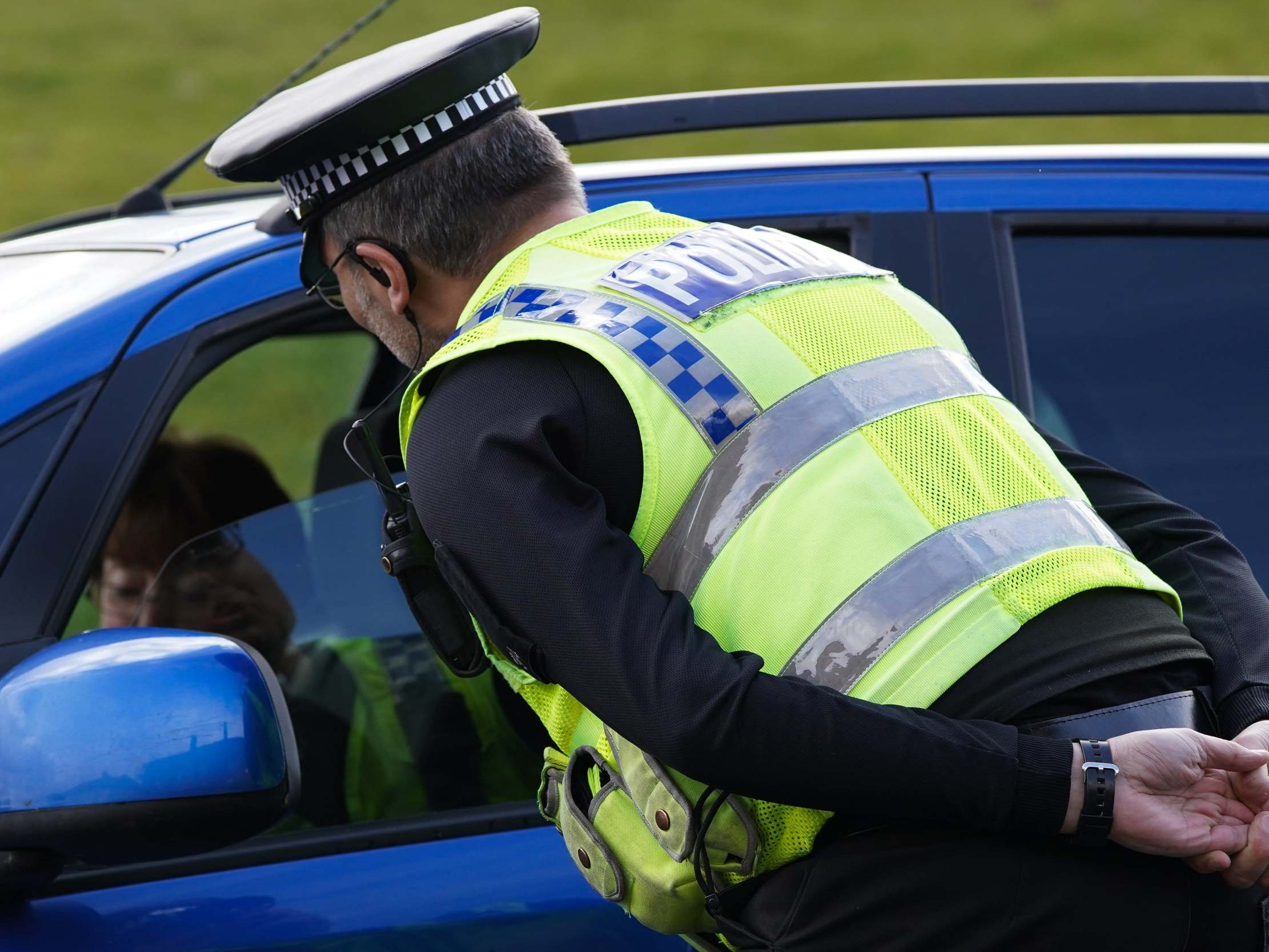Coronavirus lockdown confusion causing ‘postcode lottery’ of police enforcement, report warns
Some police forces handed out hundreds of fines in first two weeks of new powers, while others were in single figures
Your support helps us to tell the story
From reproductive rights to climate change to Big Tech, The Independent is on the ground when the story is developing. Whether it's investigating the financials of Elon Musk's pro-Trump PAC or producing our latest documentary, 'The A Word', which shines a light on the American women fighting for reproductive rights, we know how important it is to parse out the facts from the messaging.
At such a critical moment in US history, we need reporters on the ground. Your donation allows us to keep sending journalists to speak to both sides of the story.
The Independent is trusted by Americans across the entire political spectrum. And unlike many other quality news outlets, we choose not to lock Americans out of our reporting and analysis with paywalls. We believe quality journalism should be available to everyone, paid for by those who can afford it.
Your support makes all the difference.Confusion between government guidance on coronavirus and the law has created a “postcode lottery” of police enforcement, a report has found.
The Big Brother Watch campaign group said emergency regulations brought in to enforce the lockdown had been “policed in an inconsistent, incompetent and exceedingly heavy-handed manner”.
The report said some forces had “confused government guidance with the law” and attempted to enforce “essential travel”, which is not a requirement under the Health Protection Regulations.
Even after the official guidance for police officers was updated to state that “we don’t want the public sanctioned for travelling a reasonable distance to exercise”, some forces including Dorset refused to change their stance.
“This is fast developing into a policing crisis, with citizens subject to a postcode lottery version of the law,” Big Brother Watch said, calling for the government’s guidance to be aligned with the law.
“Inconsistencies and inaccuracies in interpretation of the regulations persist across police forces nationally.”
Campaigners called for police leaders and the Crown Prosecution Service (CPS) to conduct a review of how the restrictions have been implemented.
Police leaders have admitted mistakes but claimed that consistency was improving following the introduction of new guidance for officers.
The law giving police the powers to arrest and fine people for violating the UK’s lockdown did not come into force until three days after Boris Johnson’s announcement on 23 March.
But several police forces started enforcing the government guidance “without a legal basis”, the report said.

Derbyshire Police filmed walkers with drones, even though they were not breaking the law, and British Transport Police stopped commuters at ticket gates and told some to go home in London.
Police in Crewe began stopping cars to “ascertain the need for their journey” and officers in Coventry forcibly broke up a barbecue.
“No matter the circumstances, neither the government nor the police should imply legal authority where there is none, or act outside of the law,” Big Brother Watch said in its report.
In the two weeks after the Health Protection Regulations came into effect on 26 March, statistics show that some regional police forces handed out hundreds of fines for violating restrictions, but other areas were in single figures.
There were stark differences between neighbouring police forces, such as Lancashire Police, which handed out 380 fines in the period, while Humberside Police issued just two.
There is no route for the public to challenge the fines apart from risking prosecution by refusing to pay.
The National Police Chiefs’ Council (CPS) admitted that several fines had been unlawfully given to children, who cannot be punished under the Health Protection Regulations.
Last week, they were reworded to make clear that people can commit a crime by remaining outside “without reasonable excuse” even if they left home for a permitted reason.
While ministers have characterised the change as a clarification rather than a tightening of restrictions, Big Brother Watch said it meant “that certain actions that previously would not have constituted an offence under the regulations now would”.
The report contained numerous reported incidents of police overstepping the restrictions, including by moving people on from parks who had been exercising using yoga and boxing, or for “threatening” disabled people for resting on benches during walks.

It said that officers were also going beyond the law by demanding identification from people travelling to work, which is a reasonable excuse to leave home under the Health Protection Regulations.
Several miscarriages of justice have been identified under the separate Coronavirus Act, which was created to enforce planned quarantine and testing measures that were not enacted because of the speed the virus spread.
The first woman wrongly convicted had been questioned for “loitering” at Newcastle Central station, and was fined £600 despite not being present in court.
Police have also admitted misapplying the Coronavirus Act in London and Coventry, while several reviews are ongoing.
Big Brother Watch uncovered a new case, where a teenager in Oxford who visited his vulnerable mother was wrongly convicted under the Coronavirus Act.
The 18-year-old was charged under Schedule 21, which can only apply to “potentially infectious persons”, and it also emerged that the Welsh version of the law had been used.
“Clearly, there are serious problems with the enforcement of these extraordinary new powers,” the report said.
“It is astounding that so many layers of the criminal justice system are repeatedly misunderstanding and misusing the new emergency legislation.”
Big Brother Watch said that a lack of transparency over the number of charges meant that the extent of the problem was not known, and called for all convictions under new coronavirus laws to be reviewed by the CPS.
It said the Health Protection Regulations had still not been approved by MPs in England, and that lockdown conditions had not undergone sufficient parliamentary scrutiny.
“The government must publish its exit strategy, as decisions of this magnitude demand not only legal authority but democratic consent,” the report added.
It also raised concerns over the use of controversial surveillance techniques, including drones, ANPR and mobile tracking for a new NHS app.
A spokesperson for the National Police Chiefs' Council said: “Consent is always the basis for UK policing so we welcome the public’s unprecedented cooperation with guidance that saves lives.
”Police guidance was introduced quickly amidst unique operational challenges and risks so we continue to welcome scrutiny of our work. We shall give these recommendations careful consideration.”

Join our commenting forum
Join thought-provoking conversations, follow other Independent readers and see their replies
Comments